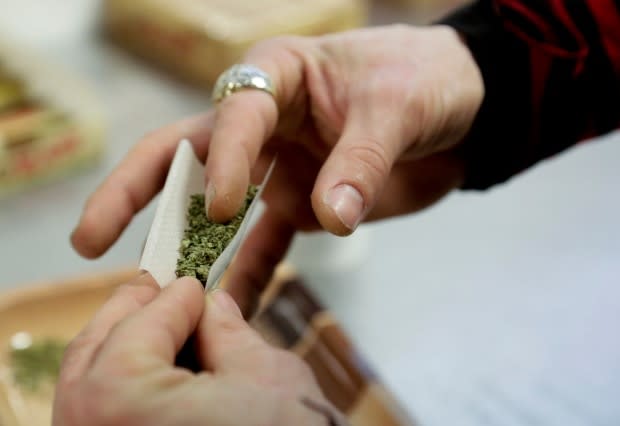High rate of youth hospitalization from substance use has P.E.I. mental health chief 'very concerned'
Young people on Prince Edward Island age 10 to 24 have the fourth-highest hospitalization rate nationally when it comes to harm from substance use, according to a study released this week by the Canadian Institute for Health Information.
I'm very concerned because we have young people and even older people presenting with psychosis because of marijuana use. — Dr. Heather Keizer
The data, collected between 2017 and 2018 — prior to the legalization of cannabis — shows that across the country, the rate of hospitalization per 100,000 people was 364. On Prince Edward Island, that number was 547.
Geoff Hynes, manager of the population health initiative with the institute, said there are many factors that could account for the province's higher than average hospitalization rate.
"What's the availability of community services, for example?" said Hynes.
"Because what we do see and we know in some areas in the North is that, for example, if there are no community services available then perhaps some of these people may end up in the hospital to receive care, because that could be the only option for them."
Mental health and substance use
On Prince Edward Island, cannabis was the substance that led to hospitalization most, the report indicated. Substances that were not identified, or combinations of substances, were the next most common followed by alcohol.

Hynes said substance use and mental health tend to go hand in hand. Nationally, nearly seven in 10 hospitalizations involved a concurrent disorder, which could be anything from anxiety to schizophrenia and other mental-health conditions.
"In P.E.I. we found that that number was even higher," said Hynes.
"It was 79 per cent. So almost eight of every 10 of these hospitalizations in P.E.I. involved a concurrent disorder," he said.
"This is really challenging because while addiction and substance use are independent, they interact with one another."
Male and female hospitalization rates
Hynes said nationally, males between the age of 18 and 24 have the highest rates of hospitalization for substance use, but on P.E.I. that isn't the case.
For youth between 15 and 17, female rates of hospitalization are "significantly higher than they are for males," he said.
Hynes said for the 18 to 24 age group, there isn't a "major difference" between hospitalization rates of males and females, but in that age group females "may be a little higher."
"So that's a bit of a unique pattern that we see in Prince Edward Island that may be different in some other provinces and territories."
An ongoing concern
Dr. Heather Keizer, Health PEI's chief of mental health and addiction, said she regularly works emergency rooms on the Island.

The study's numbers do "reflect the reality" on Prince Edward Island, she told CBC News: Compass host Louise Martin Friday.
"Unfortunately, I would not have an evening in the emergency room that I wouldn't see at least one case of somebody coming in with a negative response to marijuana, for instance," Keizer said.
Keizer said Health PEI and the Island's Public Health office are working together to reduce what they think is going to be an ongoing concern with cannabis use.
"I'm very concerned because we have young people and even older people presenting with psychosis because of marijuana use," she said. Keizer said with that, patients can have hallucinations, paranoia and violent behaviour.
She said along with continued medical care for people suffering from negative effects of substance use, parents and youth need to be careful of their consumption and the potential consequences associated.
Education is key
Hynes said the hope is this research will continue, so the data can be compared to rates after cannabis became legal.

He said education is key to reducing the number of hospitalizations by helping young people of legal age better understand how to responsibly consume cannabis and alcohol.
For those who aren't of legal age to consume cannabis, he said he hopes the research might encourage them to delay use.
"Until they're of age or even older, because what we do know is that the brain continues to develop until one's 25," said Hynes.
"And so if we can reduce the stigma and get more of an open conversation about the risks and harms, I think that that would benefit everyone."
In an email, a spokesperson for the Department of Education said that "health curricula are mandatory from grades 1 to 9 and wellness 10 is a graduation requirement for all students."
"Throughout these curricula students are taught about health choices and skills related to risk taking and decision making," the email said.
"We work collaboratively with our health partners to reduce the health harms associated with youth substance use."
More P.E.I. news

